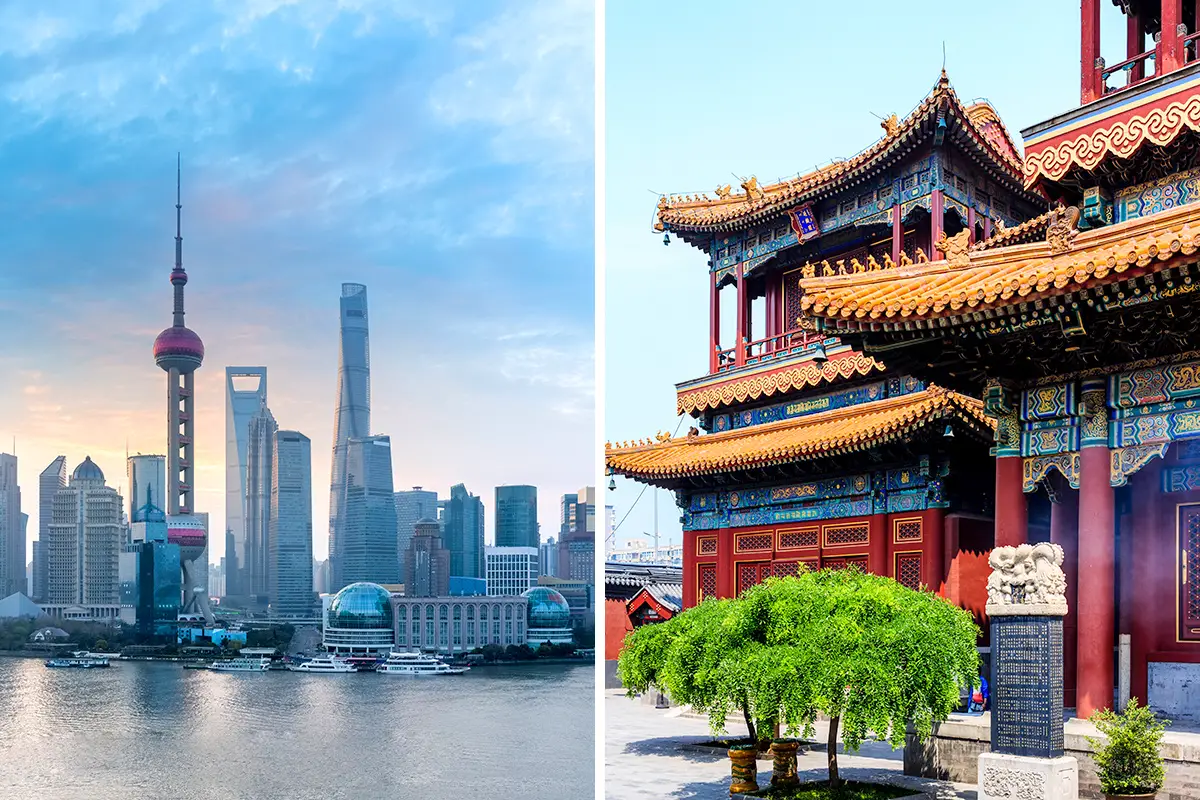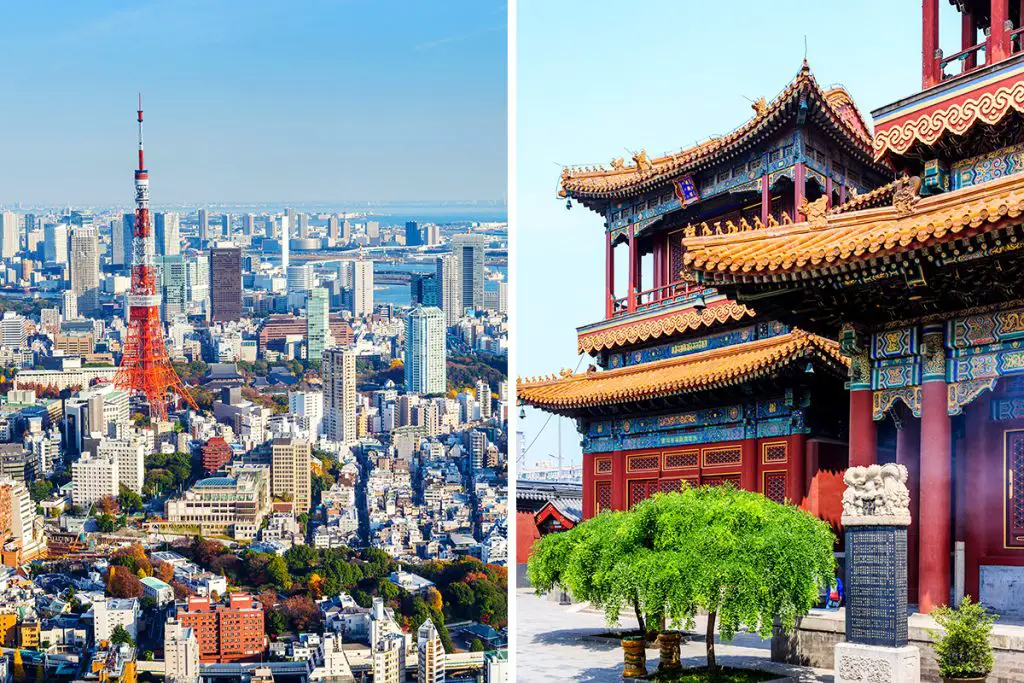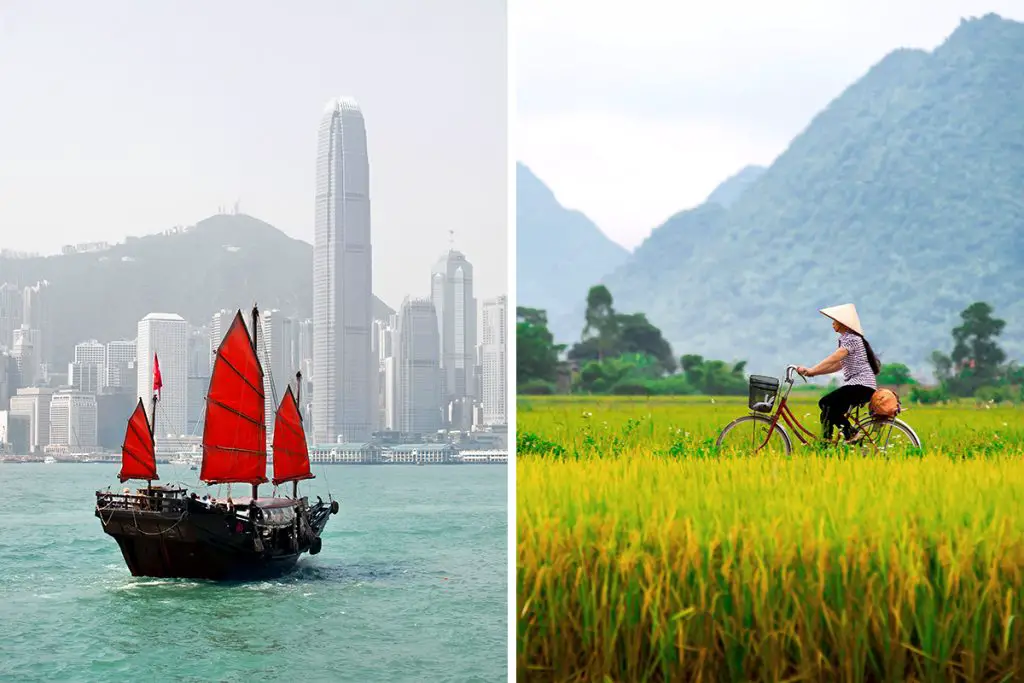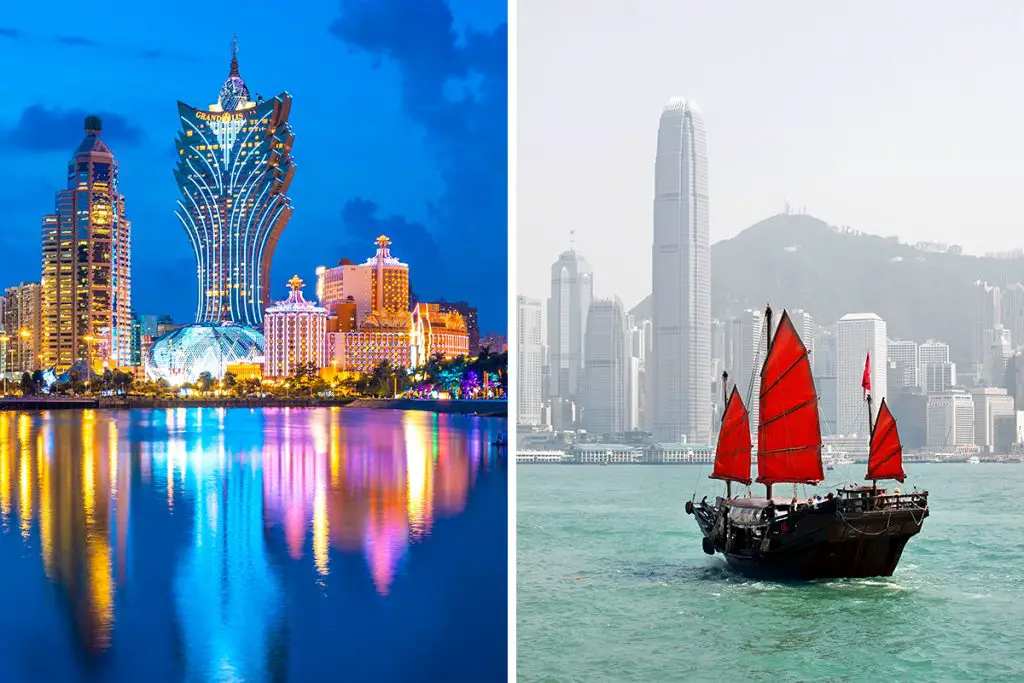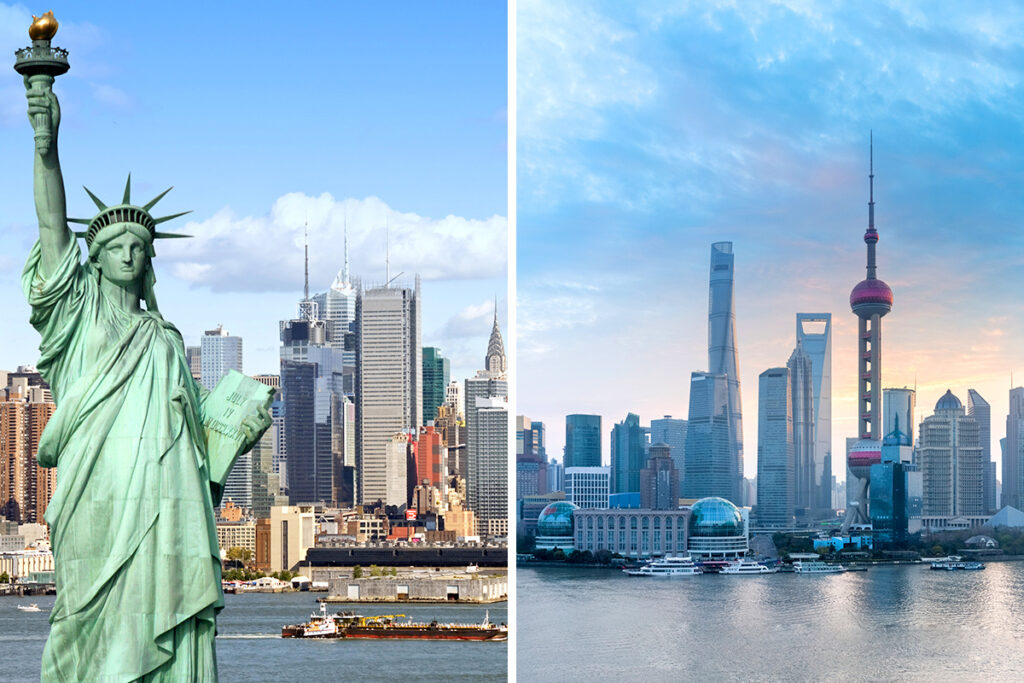Each city offers an array of exciting activities, stunning sights, and unforgettable experiences for travelers. To help you make the right choice for your next adventure, continue reading as we dive into a detailed comparison of Shanghai and Beijing, covering various factors such as culture, attractions, and more. Don’t miss out on discovering which city suits you best!
History & Culture
When it comes to history and culture, Shanghai and Beijing offer unique experiences. Let’s explore the distinct characteristics of each city to help you decide which destination better aligns with your interests.
Shanghai, known for its modern flair, has a relatively shorter history compared to Beijing. It grew rapidly from a small fishing village to a bustling international port. Today, it showcases a blend of Western and Chinese influences in its architecture and overall atmosphere.
Beijing, on the other hand, boasts a rich history spanning over 3,000 years. As the ancient capital of China, it has been the political, cultural, and educational center for centuries. This city allows you to immerse yourself in China’s fascinating past and explore its traditional heritage.
In Shanghai, you’ll find contemporary art galleries, cutting-edge designs, and innovative cultural spaces. This city is a hub for creativity, attracting artists, designers, and entrepreneurs from around the world.
Beijing’s cultural scene, while also modernizing, remains deeply rooted in tradition. You’ll encounter ancient temples, palaces, and historic sites that offer a glimpse into China’s storied past. The city is also home to renowned museums and galleries, showcasing Chinese art and history.
Both cities celebrate various festivals and events throughout the year. While Shanghai’s festivities tend to have a more international flavor, Beijing’s celebrations often focus on traditional Chinese customs and rituals.
In summary, if you’re seeking a destination with a vibrant mix of modernity and tradition, Shanghai might be your choice. However, if you’re more drawn to ancient history and a deep cultural experience, Beijing would be the better option.
Attractions & Activities
Now let’s take a look at the attractions and activities available in Shanghai and Beijing.
Shanghai’s most iconic sight is its futuristic skyline, dominated by the Oriental Pearl Tower and the Shanghai Tower. Strolling along the historic Bund, you’ll witness the contrast between old and new as you admire colonial-era buildings alongside modern skyscrapers.
Other popular activities include visiting the peaceful Yuyuan Garden and exploring the trendy Tianzifang neighborhood.
In Beijing, you can’t miss the famous Great Wall of China, a remarkable feat of ancient engineering stretching across the country’s northern borders. The Forbidden City, the imperial palace of the Ming and Qing dynasties, offers a fascinating journey through China’s royal history.
Additionally, the Temple of Heaven and the Summer Palace are must-see attractions showcasing the city’s architectural and cultural heritage.
For nature lovers, Shanghai provides green spaces like Century Park and the serene Zhujiajiao Water Town. These locations offer a break from the bustling city life and a chance to unwind in picturesque settings.
Beijing’s natural attractions include the idyllic Beihai Park and the Fragrant Hills, perfect for hiking and enjoying breathtaking views. The city also offers serene escapes like the historic hutongs, narrow alleys lined with traditional courtyard homes.
When it comes to entertainment, Shanghai is known for its acrobatic shows and contemporary theater performances. You can catch spectacular productions that highlight the city’s modern, artistic vibe.
In contrast, Beijing offers traditional Peking opera performances and Chinese shadow puppet shows. These events provide insight into China’s rich performing arts heritage.
To sum up, both Shanghai and Beijing boast an array of attractions and activities that cater to different interests. If you prefer a blend of history and modernity, Shanghai may be the right choice. But if you’re seeking an authentic, traditional experience, Beijing might be the better option.
Beaches
While Shanghai and Beijing aren’t known for their beaches, you can still find some coastal retreats near both cities. This section will compare the beach options available around Shanghai and Beijing.
Shanghai has a few beach options, with the closest one being Jinshan City Beach. About 40 miles (64 kilometers) from the city center, this man-made beach offers a convenient getaway for city dwellers seeking sun and sand.
In contrast, Beijing is landlocked, so you’ll need to travel further to reach the coast. Beidaihe, a popular beach resort, is about 180 miles (290 kilometers) from Beijing. This scenic area is a favorite among locals and tourists for its sandy shores and natural beauty.
Apart from Jinshan City Beach, Shanghai also offers access to nearby coastal destinations like Dishui Lake and Nanhui Beach Park. These locations are perfect for a relaxing day trip or a weekend escape from the city’s hustle and bustle.
Visiting beaches near Beijing requires more planning and travel time. Aside from Beidaihe, you can explore other coastal areas like Qinhuangdao and Shanhaiguan. These locations boast beautiful beaches and historical sites, making them ideal for a longer trip.
If you’re looking for a more exotic beach experience, both Shanghai and Beijing have relatively easy access to tropical destinations like Hainan Island or Southeast Asian countries. From Shanghai, you can reach these beach paradises faster due to their closer proximity.
In conclusion, if beach visits are an essential part of your travel itinerary, Shanghai might be the better choice due to its closer proximity to coastal destinations. However, if you’re willing to travel further, Beijing also offers access to beautiful beach resorts and nearby coastal cities.
Eating, Drinking & Nightlife
When it comes to eating, drinking, and nightlife, both Shanghai and Beijing have plenty to offer. Let’s dive into the culinary and entertainment scenes of these two cities.
Shanghai is known for its diverse food scene, ranging from traditional Shanghainese cuisine to international flavors. You can savor delicious dishes like xiaolongbao (soup dumplings) or explore the city’s numerous food streets and markets.
In Beijing, you’ll find a strong emphasis on traditional Chinese cuisine, particularly the famous Peking duck. Local specialties like jianbing (Chinese crepes) and zhajiangmian (noodles with soybean paste) are also popular among food lovers.
For drinks, Shanghai is home to a vibrant cocktail scene, with trendy bars and speakeasies scattered throughout the city. You’ll find innovative and classic cocktails, as well as a variety of international wines and beers.
In contrast, Beijing’s drinking culture leans more towards traditional Chinese beverages. You can enjoy local favorites like baijiu (a strong Chinese liquor) or sample craft beers at one of the city’s growing number of microbreweries.
Shanghai’s nightlife is famous for its glitzy clubs, live music venues, and rooftop bars. The city offers a mix of high-end and more laid-back options, catering to different tastes and budgets.
Beijing’s nightlife, while not as flashy as Shanghai’s, still provides an array of entertainment options. You can catch traditional performances like Peking opera, visit lively karaoke bars, or explore the city’s thriving underground music scene.
To sum up, if you’re looking for a cosmopolitan dining experience and a diverse nightlife scene, Shanghai might be the better choice. However, if you prefer a more traditional culinary adventure and a mix of classic and modern entertainment, Beijing could be the ideal destination for you.
Shopping
Shopping is a favorite pastime for many travelers, and both Shanghai and Beijing have plenty to offer. In this section, we’ll compare the shopping experiences in these two cities.
Shanghai is known for its modern shopping malls and luxury boutiques. High-end areas like Nanjing Road and Huaihai Road are perfect for finding the latest designer fashions and international brands.
Beijing, on the other hand, is famous for its traditional markets and cultural souvenirs. Head to places like Wangfujing Street and Panjiayuan Antique Market to find unique items, such as silk, tea, and traditional handicrafts.
Besides upscale shopping areas, Shanghai also has local markets and street vendors. Visit Yuyuan Bazaar or Tianzifang for a more authentic shopping experience and to find locally made products.
In Beijing, you can also find modern shopping centers like Sanlitun and The Place. These areas offer a mix of international brands, trendy boutiques, and dining options, catering to different tastes and budgets.
For those interested in electronics, both cities have large markets dedicated to gadgets and tech products. In Shanghai, you can explore the famous Xujiahui electronics market, while Beijing boasts the massive Zhongguancun electronics hub.
In conclusion, if you’re seeking a more high-end, modern shopping experience, Shanghai is the better choice. However, if you prefer browsing through traditional markets and finding cultural souvenirs, Beijing might be the ideal destination for you.
Accommodation
Finding a comfortable place to stay is essential for any trip. Let’s compare the accommodation options in Shanghai and Beijing.
Shanghai offers a wide range of accommodation options, from luxury hotels to budget-friendly hostels. You can find international hotel chains, boutique hotels, and serviced apartments to suit your needs.
Similarly, Beijing provides diverse lodging choices, including historic courtyard hotels and affordable guesthouses. You’ll find well-known hotel brands, as well as unique, locally owned establishments.
Both cities offer plenty of budget-friendly options for travelers. In Shanghai, you can find affordable hostels and guesthouses in areas like the French Concession or near The Bund.
In Beijing, budget accommodations are available in popular neighborhoods like hutongs or around tourist attractions like the Forbidden City.
No matter where you stay in Shanghai or Beijing, it’s essential to consider the location. Proximity to public transportation and popular attractions will make your visit more convenient and enjoyable.
In summary, both Shanghai and Beijing have a variety of accommodation options to suit different budgets and preferences. Consider the type of experience you want and the attractions you plan to visit when choosing your lodging in either city.
Family-Friendliness & Children’s Activities
Traveling with kids can be a challenge, but both Shanghai and Beijing have plenty of family-friendly attractions and activities to keep everyone entertained. In this section, we’ll compare the family-friendliness and children’s activities in these two cities.
Shanghai is home to several theme parks, including the famous Shanghai Disneyland. With its variety of rides, shows, and character meet-and-greets, it’s a magical experience for the whole family.
Beijing, on the other hand, offers educational and cultural experiences for children. The Beijing Zoo and the Beijing Museum of Natural History provide fun and interactive learning opportunities about animals and nature.
Both cities have numerous parks and green spaces where families can relax and enjoy outdoor activities. In Shanghai, you can visit Century Park or the Shanghai Botanical Garden. In Beijing, consider exploring the Summer Palace or Jingshan Park.
For a unique cultural experience, consider taking your kids to a traditional Chinese performance. Shanghai has the interactive ERA Acrobatics Show, while Beijing offers the impressive Legend of Kung Fu Show.
Family-friendly accommodations can be found in both cities. Shanghai has hotels with kid-friendly amenities, such as swimming pools and play areas. Similarly, Beijing offers courtyard hotels and guesthouses that cater to families.
In conclusion, both Shanghai and Beijing have a range of family-friendly attractions and activities. While Shanghai may be better suited for those seeking theme parks and modern entertainment, Beijing provides more educational and cultural experiences for children.
Getting There & Getting Around
Getting to and around Shanghai and Beijing is an important aspect of planning your trip. In this section, we’ll compare the transportation options in these two cities.
Shanghai is served by two major airports, Pudong International Airport (PVG) and Hongqiao International Airport (SHA). Flights from various international destinations arrive daily. From the airport, you can take a taxi or public transportation, like the Maglev train or subway, to reach the city center.
Beijing has one primary airport, Beijing Capital International Airport (PEK), which also offers flights from numerous international cities. The Airport Express train and taxis are available for a convenient transfer to the city.
Both cities have extensive public transportation systems, making it easy to get around. Shanghai’s metro system is one of the largest in the world, with over 400 miles (643 kilometers) of track. Beijing’s subway system, while slightly smaller, is still extensive and covers most tourist attractions.
Taxis and ridesharing services are readily available in both cities, providing a convenient option for getting around. Just remember to have your destination address written in Chinese, as many drivers may not speak English.
For a more traditional experience, consider using a bicycle or rickshaw to explore the cities. Bike-sharing programs are popular in Shanghai and Beijing, while rickshaws can be found in Beijing’s historic hutong neighborhoods.
In summary, both Shanghai and Beijing offer a variety of transportation options for getting to and around the cities. Whether you prefer public transportation, taxis, or alternative methods, you’ll find it easy to navigate these destinations.
Weather
When planning a trip, it’s essential to consider the weather in your chosen destination. In this section, we’ll compare the weather in Shanghai and Beijing to help you decide when to visit.
Shanghai’s climate is characterized by hot, humid summers and cool, damp winters. The average temperature in July, the warmest month, is around 82°F (28°C), while January, the coldest month, has an average temperature of 37°F (3°C). Be prepared for rainy days, especially during the plum rain season in June.
Beijing has a more continental climate, with hot, dry summers and cold, dry winters. In July, temperatures average 88°F (31°C), while January sees average temperatures of 25°F (-4°C). The city receives most of its precipitation during the summer months, with occasional sandstorms in the spring.
Both cities experience four distinct seasons, with spring and autumn being the most pleasant times to visit. In Shanghai, the weather is mild and comfortable during these seasons, while Beijing showcases beautiful foliage in the autumn and vibrant blossoms in the spring.
Keep in mind that during national holidays, like Chinese New Year and National Day, both cities can be very crowded. These times may also see fluctuations in weather conditions.
In summary, Shanghai and Beijing have different weather patterns, with Shanghai being more humid and Beijing being drier. Choose the time of your visit based on your weather preferences, and remember to plan for the seasons and holidays.
Safety
Safety is an important factor when traveling to a new destination. In this section, we’ll compare the safety of Shanghai and Beijing.
Both Shanghai and Beijing are generally considered safe cities for tourists. Petty crimes like pickpocketing and bag-snatching can occur in crowded areas, so it’s important to stay vigilant and secure your belongings.
Scams targeting tourists can happen in both cities. Be cautious of people offering unsolicited services, like guided tours or taxi rides. To avoid overcharging, use official taxis and agree on a price before starting any tour.
Traffic can be chaotic in both Shanghai and Beijing. When crossing the street, be aware of vehicles, bicycles, and scooters, as they may not always follow traffic rules. Make sure to use designated crosswalks and follow pedestrian signals.
For a unique safety concern, air quality in Beijing can be an issue, especially during the winter months. If you have respiratory issues, consider monitoring the air quality and wearing a mask if necessary.
In conclusion, both Shanghai and Beijing are relatively safe cities for tourists. It’s essential to be aware of potential risks and take appropriate precautions to ensure a worry-free and enjoyable trip.
Cost
When planning your vacation, the cost is always an essential factor. This section will compare the cost of visiting Shanghai and Beijing to help you make an informed decision.
Shanghai, being a more international and cosmopolitan city, tends to be slightly more expensive than Beijing. Accommodation in Shanghai can range from 250 RMB ($39) for budget hotels to over 1,500 RMB ($235) for luxury hotels. In Beijing, you may find budget hotels for as low as 150 RMB ($23) and luxury hotels for 1,000 RMB ($157).
Eating out in both cities offers a wide range of options. In Shanghai, a meal at a local restaurant might cost around 50 RMB ($8), while a meal at a high-end restaurant can go over 200 RMB ($31). In Beijing, a local meal can be as cheap as 30 RMB ($5), and upscale dining may start at 150 RMB ($23).
Public transportation is affordable in both cities. A subway ride in Shanghai costs between 3 RMB ($0.47) and 9 RMB ($1.40), depending on the distance. In Beijing, subway fares range from 3 RMB ($0.47) to 10 RMB ($1.56).
Attractions and activities vary in price. In general, entrance fees for popular attractions in Shanghai and Beijing can range from 30 RMB ($5) to 150 RMB ($23).
In summary, while both Shanghai and Beijing can cater to different budgets, Shanghai tends to be slightly more expensive than Beijing. Keep your preferences and budget in mind when choosing your destination.
Which Is Better – Shanghai or Beijing?
After comparing various aspects of Shanghai and Beijing, it’s time to decide which destination is better suited for your trip.
For history and culture enthusiasts, Beijing offers a richer experience with its ancient sites and deep-rooted traditions. On the other hand, if you’re more interested in modern architecture and a cosmopolitan vibe, Shanghai is the place to be.
When it comes to attractions and activities, both cities have plenty to offer. However, if you’re looking for a diverse range of shopping experiences and a futuristic skyline, Shanghai has the edge. If you prefer exploring historic landmarks and UNESCO World Heritage sites, Beijing is the winner.
Beach lovers will find better options near Shanghai, while foodies and nightlife seekers may enjoy both cities, with each offering unique culinary and entertainment experiences.
Family-friendliness and children’s activities are abundant in both destinations, with a variety of attractions catering to younger travelers. However, transportation and getting around are slightly more accessible in Shanghai due to its extensive and modern public transport system.
Weather-wise, it depends on your preference. Shanghai has a more humid climate, while Beijing’s is drier. Plan your visit according to your weather preferences and seasonal events.
Safety is a priority in both cities, but remember to stay vigilant and take necessary precautions. Costs are generally more affordable in Beijing, but both cities can cater to different budgets.
In conclusion, your choice between Shanghai and Beijing depends on your interests, preferences, and priorities. Both cities offer unique experiences, and the best option may be to visit both if time and budget allow.

